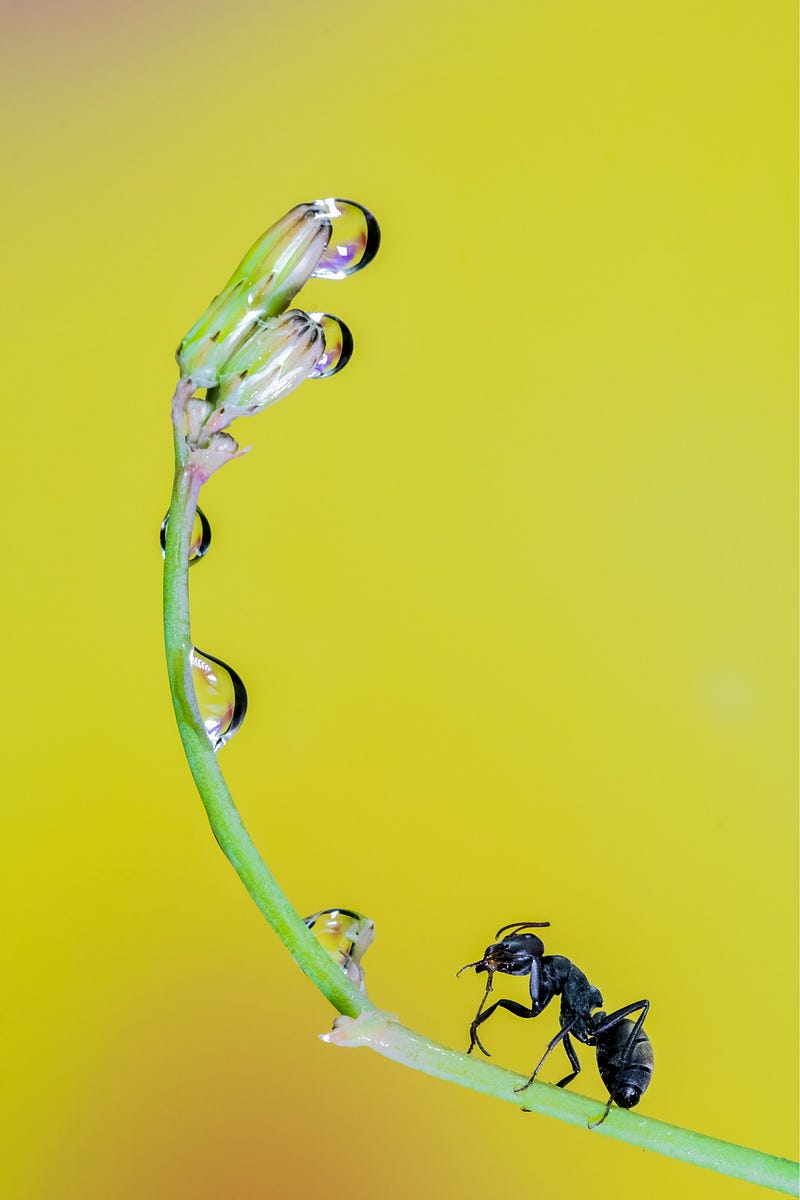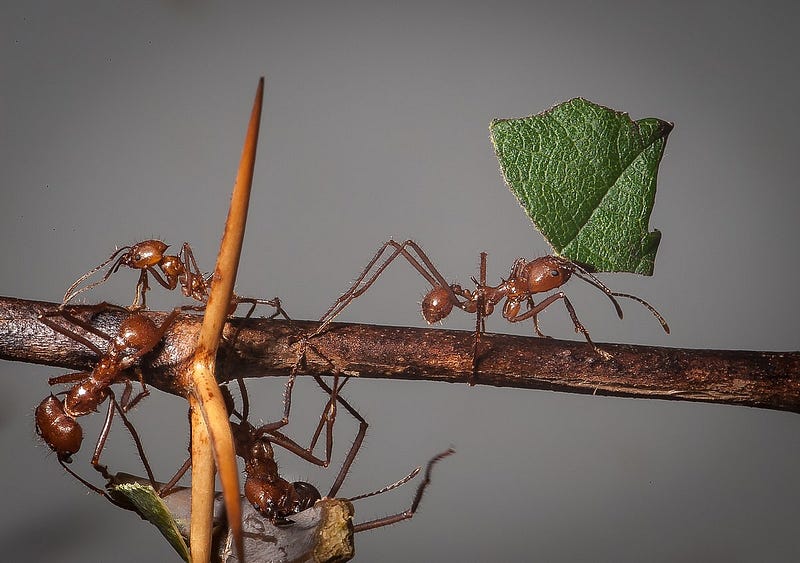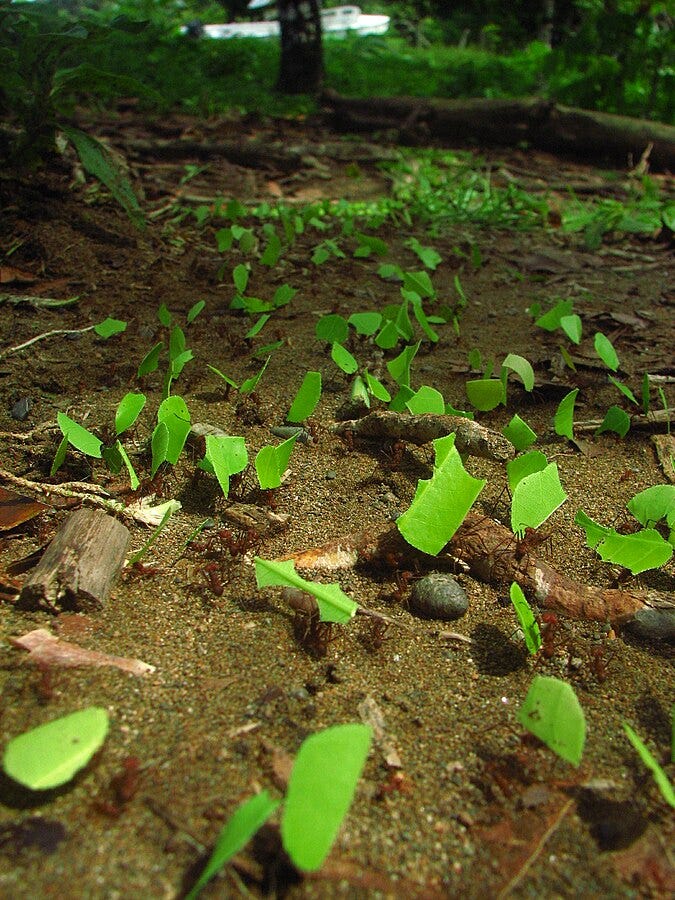The Evolutionary Marvel of Ants and Their Agricultural Skills
Written on
Chapter 1: The Unlikely Farmers
Ants have been cultivating their food for millions of years, demonstrating a form of agriculture that predates human practices. This fascinating capability highlights the concept of delayed gratification, where immediate rewards are sacrificed for greater future benefits.
This phenomenon extends beyond ants; it reflects a broader narrative of evolution, showcasing not only biological changes but also cultural advancements. While humans began domesticating crops and livestock around 10,000 years ago, ants have been practicing agriculture for far longer.

The psychological foundation of agriculture is intertwined with the concept of delayed gratification. Research indicates that children who resist immediate rewards, like a single marshmallow now versus two later, tend to exhibit healthier personality traits. This principle of patience is mirrored in farming practices, where resources are conserved and nurtured for future yields.
Section 1.1: Ants as Agricultural Pioneers
Among the most notable examples of this behavior are Leaf-Cutter ants, known scientifically as Atta. These remarkable insects have developed sophisticated farming techniques, creating extensive underground nests that can extend up to six meters deep.
The ants harvest leaves, which they don’t consume directly. Instead, they use these leaves to cultivate a specific type of fungus, their primary food source. By processing the leaves into compost, they create a unique environment for fungi to thrive, which in turn nourishes the ants and their larvae.
Ants Eating Marshmallow | Relaxing Music - YouTube
The video showcases a relaxing ambiance as ants interact with their environment, capturing the essence of their industrious nature.
Subsection 1.1.1: The Unique Relationship with Fungi
The Atta ants meticulously manage their fungal crops, preventing them from producing spore-bearing fruiting bodies, such as mushrooms. This ensures the fungi remain entirely dependent on the ants for survival, a relationship that underscores the ants' agricultural prowess.

Section 1.2: The Queen's Journey
Interestingly, when a queen ant seeks to establish a new colony, she takes a piece of the cultivated fungus with her, akin to farmers saving seeds for the next planting season. This remarkable act exemplifies the ants' deep-rooted agricultural practices.
Chapter 2: The Broader Context of Agriculture
How I Made an Ant Think It Was Dead—The Zombie Ant Experiment - YouTube
This video delves into an intriguing experiment involving ants, further illustrating the complex behaviors exhibited by these fascinating creatures.
The ability of ants to cultivate fungi parallels the agricultural practices of termites, who also engage in farming by cultivating a specific type of fungus from chewed wood. This independent evolution of agriculture among various species reflects the remarkable adaptability of life on Earth.

The complexities of these relationships highlight a sophisticated understanding of agriculture that has developed independently in different species. Both ants and termites demonstrate that the concept of farming is not solely a human endeavor, but a shared trait among various organisms, each adapting to their environments in unique ways.
In conclusion, the evolutionary journey of ants and their agricultural practices provides profound insights into the nature of survival, cooperation, and cultural development. Their success serves as a reminder that intelligence and innovation take many forms in the natural world.